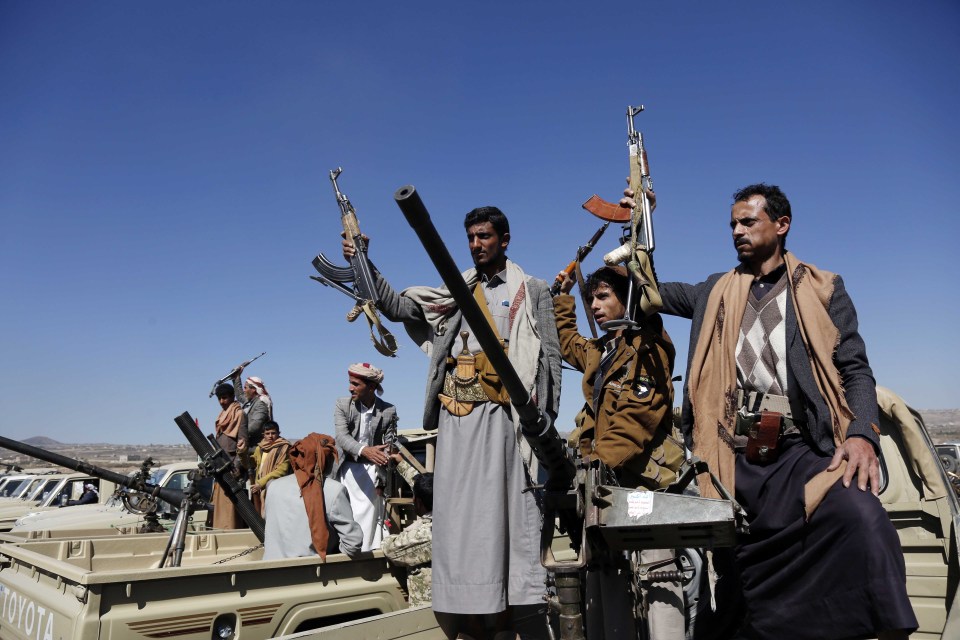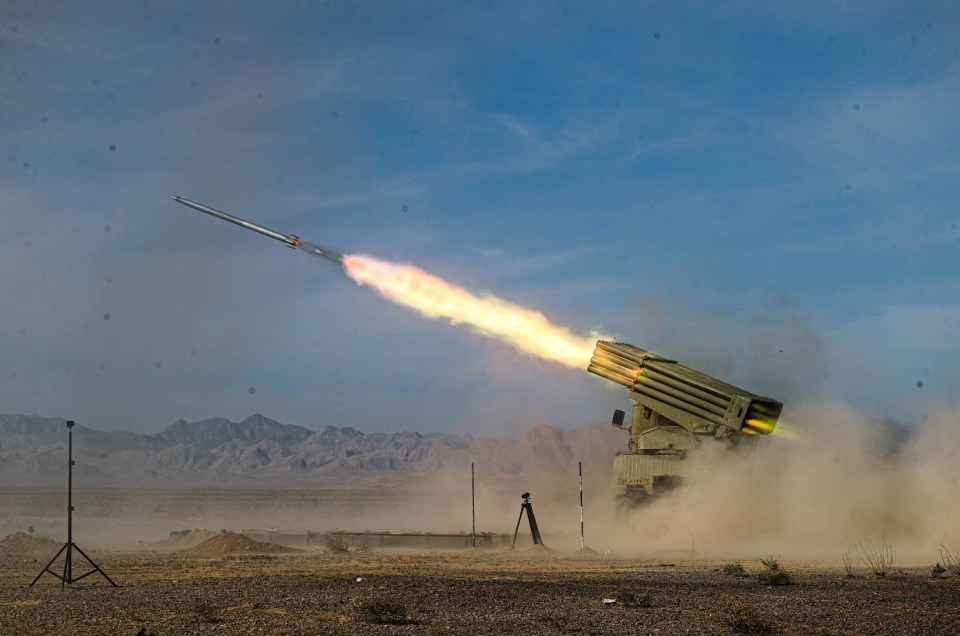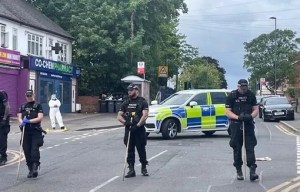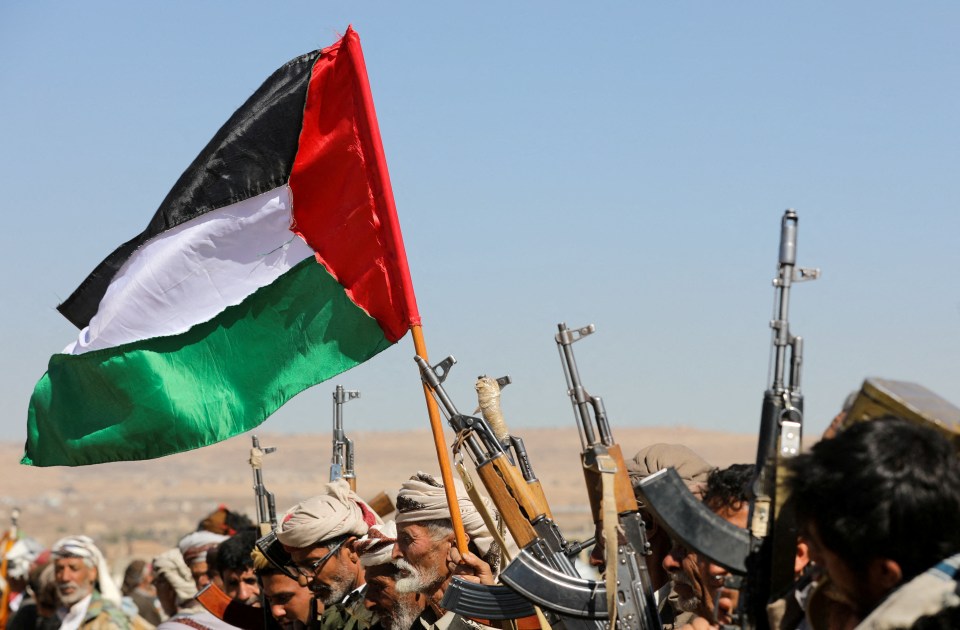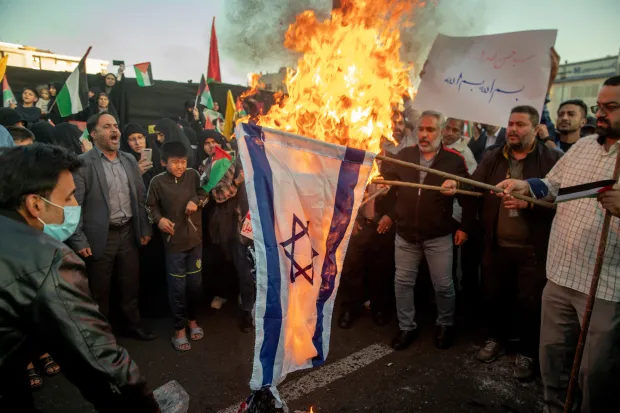IRAN attacked targets inside Pakistan with bomb-carrying drones and rockets as the Middle East's warzone spilled out.
Pakistan's Foreign Ministry claimed two children were killed in an “unprovoked violation” of the country’s airspace while others were injured.
Iran's state media said its warped terrorist army the Revolutionary Guard carried out strikes on Tuesday evening - but later withdrew the reports.
Reports said they targeted bases belonging to the militant group Jaish al-Adl, who also have a presence in Iran itself.
The group raged on Tuesday that six bomb-carrying drones and rockets struck homes belonging to the militants, their wives and children.
They claimed two children had died in the ambush and two women and a teenage girl were injured.
Read more Middle East stories
The attack further fuels conflict in the Middle East, which is a tinderbox ready to be lit as tensions explode in the Red Sea and the Israel and Gaza conflict rages on.
It also adds pressure to the already tense relations between Iran and Pakistan, countries that have long eyed each other with suspicion.
Chilling footage reportedly taken near the site - shared by HalVash, a militant group active in surrounding areas - appeared to show a burning building and two small bodies.
Pakistan's foreign ministry today slammed the airstrikes, warning that Iran could face "serious consequences" following the "completely unacceptable" escalation.
Most read in The Sun
A statement read: "The responsibility for the consequences will lie squarely with Iran.
“Pakistan strongly condemns the unprovoked violation of its airspace by Iran which resulted in death of two innocent children while injuring three girls.
“This violation of Pakistan’s sovereignty is completely unacceptable and can have serious consequences.”
It added: “Pakistan has always said terrorism is a common threat to all countries in the region that requires coordinated action.
"Such unilateral acts are not in conformity with good neighbourly relations and can seriously undermine bilateral trust and confidence.”
Two Pakistani security officials said the Iranian strikes damaged a mosque in Baluchistan’s Panjgur district, about 30 miles inside Pakistan from the Iranian border.
One security official told AP that Iran had shared no information ahead of the strike.
They added that Pakistan could respond at any time or place, and a retaliation would be in line with public expectations.
And they said: "The dangerous precedent set by Iran is destabilizing and has reciprocal implications."
China today urged both countries to show "restraint" after the strikes.
Foreign ministry spokeswoman Mao Ning said: "We call on both sides to exercise restraint, avoid actions that would lead to an escalation of tension and work together to maintain peace and stability."
Iran has fought in border areas against the militants, but a missile and drone attack on Pakistan is unprecedented.
It comes shortly after Iran's Revolutionary Guards bombarded Israel's so-called "spy headquarters" in Iraq with ballistic missiles aimed near the US consulate.
The warped terrorist army claimed responsibility for the brazen ambush which killed four, injured six others and sparked fury over the concerning escalation.
Iran's Revolutionary Guards (IRGC) said in a statement on Monday that missiles were used to destroy the "spy headquarters" of Israel in Iraq, targeting "anti-Iranian terrorist groups" amid rising tensions in the Middle East.
Chilling video showed the moment a huge blaze engulfed the sky above Erbil, the Kurdish region of Iraq, where the rockets landed.
The IRGC claimed to have hit the HQ of Mossad, the Israeli intelligence agency, close to the US consulate.
They also claimed to have blasted "terrorist operations" in Syria, destroying them.
Iranian Foreign Ministry spokesperson Nasser Kanaani claimed that Tehran was exercising it's "legal right to deter national security threats" in the fatal ambush.
"After the enemy miscalculated by targeting the Islamic Republic, Iran retaliated with its high intelligence capability in a precise and targeted operation against the culprits' headquarters," Kanaani said.
Iraq slammed the attacks today and said it would rail against Iran with all possible legal measures, including with a complaint to the UN security council.
The war between Israel and Hamas following from the October 7 massacre has seen Iraq, Syria, Yemen and Lebanon dragged into fighting in the Middle East.
And Iran's terror proxies including Hezbollah and the Houthis have gone up against Israel, the US and UK as fears of an all-out war in the region grow.
It comes after high profile Iranian general Razi Mousavi was recently killed in Syria and two Hamas and Hezbollah commanders were also taken out - both with close links to Tehran.
And the US and the UK struck Iran-backed Houthi rebels in Yemen last week in an attempt to weaken the terror proxy's strongholds.
Houthi rebels then targeted an American warship in the Red Sea on Sunday in response - failing to hit the ship with an anti-cruise missile.
Israeli strikes have hit Lebanon as well, killing over 130 Hezbollah fighters including some key commanders.
And almost 20 further Hezbollah militants have been killed by strikes in Syria.
Two members of the Iranian Revolutionary Guard were killed during an Israeli strike in Syria just weeks ago.
And after a senior Iranian general was eliminated by an IDF hit, Tehran vowed to seek revenge, swearing that Israel "will certainly pay for this crime".
Just days ago a suspected US drone strike killed an Iran-backed militia commander in Iraq, Abu Taqwa Al-Saedi, who had masterminded recent attacks on American troops stationed in the region.
The drone reportedly fired two rockets at a building in Bagdad, Iraq's capital, with Iraqi officials slamming the attack and vowing retaliation.
Read More on The Sun
The US strike came after Iranian-backed militias working in the area carried out more than 100 attacks on bases housing US troops in both Iraq and Syria.
The United States has 900 troops deployed in Syria and 2,500 in Iraq to prevent a resurgence of Islamic State militants.


